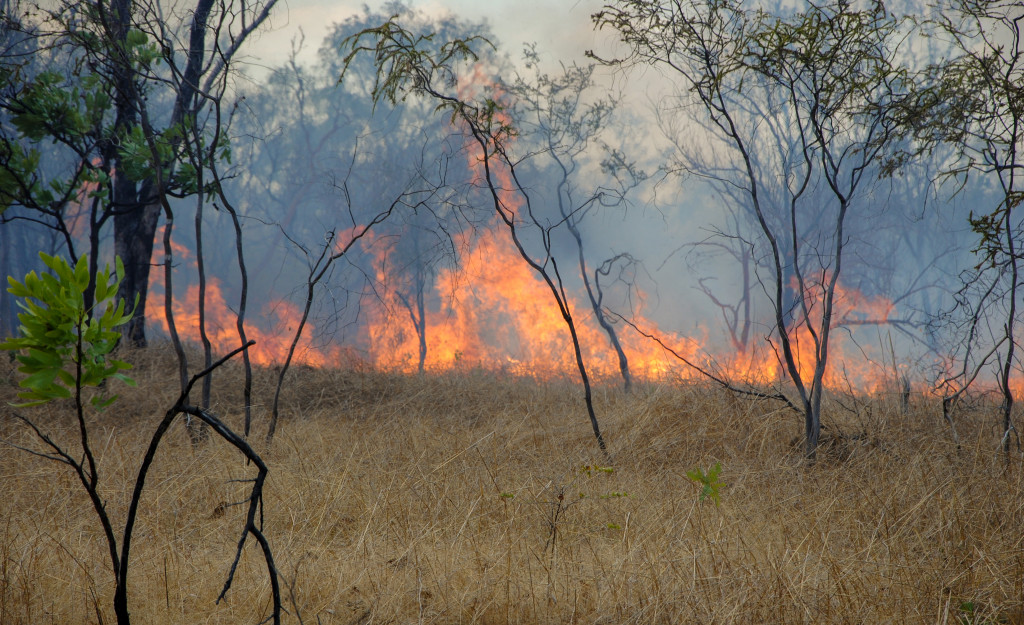According to a study by the National Interagency Fire Center (NIFC), more than 60,000 wildfires take place in the United States every year, and the amount of acreage burned every year continues to increase. The risk is very real—especially if you live on the West Coast. If you live in an area that’s prone to wildfires, here are some essential tips for keeping you, your family, and your property safe.
Prepare go-bags for the whole family
A “go-bag” is basically an emergency kit filled with the necessities that can keep you alive and hygienic for at least three days. It’s literally a bag that you can grab and go in case of a disaster or an emergency. Here are some essentials you need to place in the bag:
- Water for at least three days; the water is both for drinking and sanitation
- Food (prioritize non-perishable foods like canned goods)
- Change of clothes and underwear for at least three days
- Fully-charged portable chargers for your phones
- Hand-crank or battery-powered or hand-crank radio
- Additional prepaid burner phone with a charger and backup batteries
- Local maps
- Flashlight with fresh batteries
- Extra batteries
- First aid kit
- Manual can opener
- Pliers or wrench (to turn off utilities)
- Dust mask (to help filter contaminated air)
- Plastic ties, moist towelettes, and trash bags
- Duct tape and plastic sheeting (to shelter in place)
If you have babies and pets, make sure you have their supplies as well. Every member of your family must have their go-bag, and they must be in a place where your family members can easily grab them anytime. It will help you sleep better at night, knowing that you have personal supplies that can sustain all of you for a few days if you need to evacuate as quickly as possible.

Make sure your financial ducks are in order
Don’t wait for summer to arrive before you check if your homeowner’s insurance policy will truly be of help to you should the worst happen. Make sure that you go for programs that will truly help protect your property against any outcome. It will also benefit you greatly if you constantly update the list of your home’s contents and if you take photos regularly so that everything flows as smoothly as possible once the wildfires are over. While you’re at it, make sure that you have all of your family’s most important documents in a fireproof box that you can also bring with you in case you need to evacuate.
Maintain your home properly
There is a concept called “defensible space,” or creating a 20 to 100-foot safety zone around your property. You can ask your local fire department for more information on how to create this space, but here are some things you need to clear:
- Remove flammable vegetation, dead twigs, and limbs, and rake some leaves
- Remove tree limbs that are within 15 feet of the ground, as well as dead branches that reach your roof
- Make sure the grass is mowed regularly
- Do the necessary tree and shrub pruning, especially if they’re within 15 feet of a chimney outlet or stovepipe
- Remove vines on your walls
- Place a protective screen or barrier over your outdoor barbecue grill and ensure that the material you use as a cover is non-flammable
- Dispose of your garbage properly and regularly
- Store oily rags, gasoline, and other flammable home items in approved safety storage cans, and place those cans far away from the base of your property
Have a detailed evacuation plan ready
If you have a homeowner’s association or similar organizations, make sure to stay up-to-the-minute with updates from your local firemen and authorities. Stay abreast of news and announcements to ensure that you’re in step with the community’s evacuation plans.
But more than waiting for evacuation announcements, make sure you a plan of your own by listing down where you will shelter, how you will evacuate animals and livestock if you have any. The alternate routes you can take should your regular one be engulfed by fires.
When it comes to being ready for a wildfire, you need to always be one step ahead. Unfortunately, we have to be ready for these possibilities. Still, these are the consequences of our planet heating up—and the only thing we can do is to ensure that we are fighting for our safety and that of our property. Stay safe out there!

